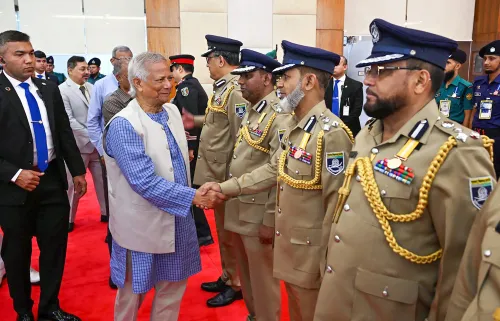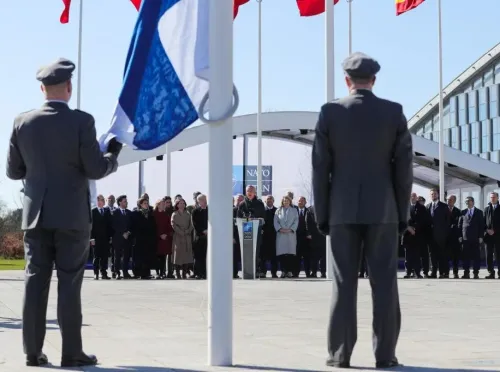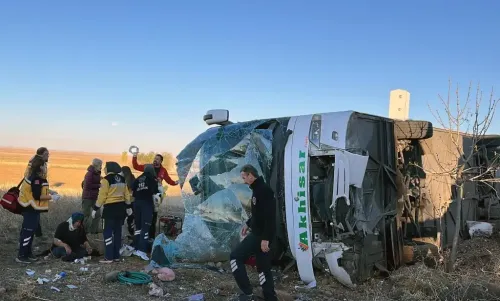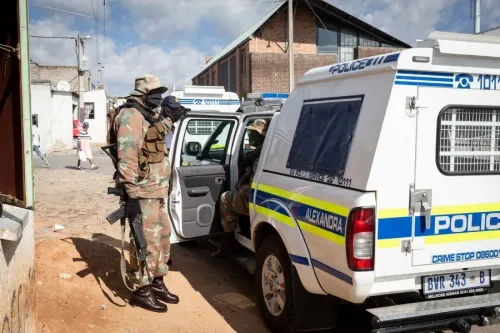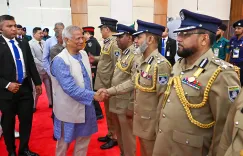Was 'Operation Sindoor' a fitting response to the 'Modi ko bata dena' challenge?
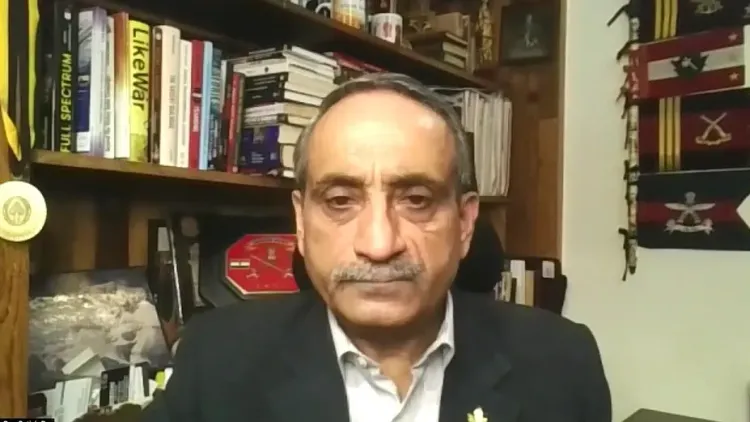
Synopsis
Key Takeaways
- Pahalgam attack was a critical moment for India.
- Operation Sindoor showcased India's military capabilities.
- Pakistan continues to engage in proxy warfare.
- Water issues are now a strategic focus for India.
- Anti-India sentiment is prevalent in Pakistan's military.
New Delhi, May 10 (NationPress) Retired Lieutenant General Satish Dua remarked on Saturday that the Pahalgam attack, where terrorists audaciously stated, “Modi ko bata dena” (Go tell Modi), marked a pivotal moment in India's approach to cross-border terrorism, particularly following the massacre of innocent lives.
In an exclusive interview with IANS, Lt Gen (Retd) Dua noted, “That phrase, ‘Modi ko bata dena,’ resonated with everyone. It became exceptionally well-known.
“At that moment, Prime Minister Narendra Modi was officially visiting Saudi Arabia. Upon hearing the news, he truncated his trip and returned immediately,” he explained.
“A critical high-level meeting ensued, which resulted in decisive actions being announced by him. Just 14 days later, we witnessed something unprecedented in India’s military history,” he added, alluding to the swift and decisive actions taken by India.
He also underscored the importance of the subsequent strikes. “The headquarters of Jaish-e-Mohammed in Bahawalpur was obliterated. Similarly, the Lashkar-e-Taiba HQ in Muridke, located just 30 kilometers from Lahore, was also targeted. Both cities host Pakistani Corps HQs, which signifies our capabilities. There’s a profound message behind these actions that is well received by Pakistan and its military.”
When questioned about whether Pakistan had learned from its past, Lt Gen Dua expressed skepticism. “Pakistan does not cease its misadventures. Despite defeats in 1947-48, 1965, and the significant loss in 1971, where we saw the separation of their country and the surrender of 93,000 soldiers, they still tout it as a victory in their internal narrative,” he commented.
He elaborated that following those failures, Pakistan resorted to proxy warfare. “I doubt Pakistan has learned its lesson. However, for the first time, we’ve addressed the issue of water, a resource we hadn’t utilized before, despite several conflicts, including Kargil, as it directly affects the average Pakistani citizen.”
He stressed the potential ramifications of this new strategy: “The implications of the water issue will likely become more significant than any military response. We must observe closely to see if they continue to ignore the lessons from history.”
Lt Gen Dua remarked on the entrenched anti-India sentiment within Pakistan’s military. “The Pakistani army thrives on anti-India sentiment. They’ve established an empire beyond military responsibilities, which they are unlikely to relinquish. Kashmir serves as the binding force amidst their internal turmoil, including Baloch and Pashtun unrest, economic distress, and public dissent. They exploit India-bashing as a means of rallying public support despite their failures.”


